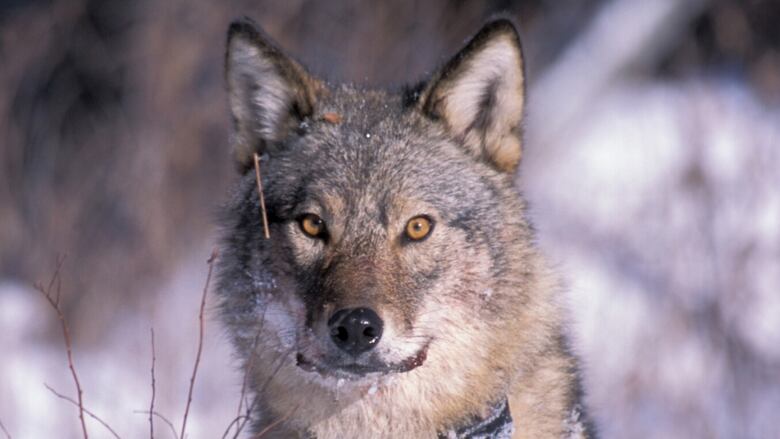Are wolves the new bears? Trappers group says wolf hunting ban repeats mistakes of spring bear hunt scrapping
Proposal would extend ban on hunting and trapping wolves and coyotes outside of provincial parks

A proposed ban on hunting and trapping wolves and coyotes is being compared to the controversial cancelling of the spring bear hunt.
The provincial government is considering creating a protected zone for the predators over 39,000 square kilometres in central and eastern Ontario, including the area between Algonquin and Killarney Provincial Parks, where there is already a ban in place.
The goal is to protect the threatened Algonquin wolf, but the ban would also include grey wolves and coyotes, whose numbers are healthy.
But Robin Horwath, general manager of the Ontario Fur Managers Federation says like the cancelling of the spring bear hunt in 1999, this is a political issue, being pushed by southern Ontario environmentalists and is based on shaky science.
"We want to make sure we get some true evidence," he told the CBC from his home in Blind River.
'A wolf is a wolf, a dog is a dog'
Horwath says the eastern wolf was renamed the Algonquin wolf two years ago, which "leads us to believe that we're looking for an iconic, symbolic wolf for Ontario."
But he says some studies show that Algonquin wolves are really just a hybrid of the coyotes and grey wolves they share Ontario forests with.
"A wolf is a wolf, a dog is a dog," Horwath says.

Horwath warns that the hundreds of wolves trapped and hunted in these areas will be eating more deer and moose and household pets.
"They're having issues with wolves and coyotes and pets. They showed a number of wolves on Ramsey Lake on the 6:00 news. And pet owners that had pets killed, missing or injured," he says.
"When we protect things, it doesn't always have a positive effect,"

Protection for wolves needed to withstand climate change
But Hannah Baron, the conversation campaign director of the group Earthroots, disagrees.
"Everyone quotes the spring bear hunt, the return of it, as being important for dealing with these nuisance bears, but we never saw that evidence," she says.
Baron argues this protected zone is needed to make the wolf population strong enough to withstand future challenges that might come with climate change.
"Without it, we don't have a good chance of the animal recovering and taking over more of its historical range,"
The Ontario Ministry of Natural Resources says is received 2,500 comments on this subject and needs to make a decision before Jun. 15.

